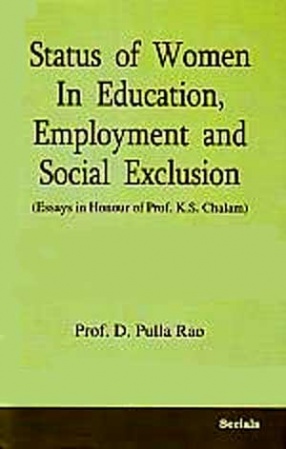Juvenile Justice: An Indian Scenario
In stock
The child is the supreme asset of a nation. It should be properly reared and growth opportunities provided for the development of its latent potential. It must be fed, nourished and protected against any form of exploitation. Moreover, the requisite means should also be provided for its normal development so that it might become a useful citizen in the years to come. With this end in view, continuous efforts have been made at the international and national levels to bring about an improvement of the deplorable conditions of some categories of children in the country. However, these efforts have so far touched only the fringe of the stupendous problems of juvenile maladjustment, delinquency, destitution, deprivation, neglect and exploitation. This book makes an attempt to bring into focus the multifarious problems of the disadvantaged children in the country and the prevailing unfavourable milieu for their normal growth and development. In pursuance of the International Convention on the Rights of the Child, various measures have been taken to ameliorate the plight of different categories of children in distress. This treatise contains nine chapters, each delineating a specific problem of juvenile maladjustment. The first chapter traces in brief the early history of child care for its all round development in India and other western countries like Britain and U.S.A. The second chapter highlights the role of the United Nations in introducing various measures for development of child-care services through conventions, conferences, agreements and regional meetings. The third chapter presents in a nutshell the position in respect of implementation of child-care programmes in some selected countries in the South-East Asian region. While discussing the problem of exploitation of child labour, the fourth chapter paints a horrible picture of the miserable plight of millions of budding children and youths and unconscionable injustice meted to them by unscrupulous employers. The fifth chapter deals with the problem of juvenile deviance and anti-social propensities in all its dimensions. The sixth chapter dwells exhaustively on the legal measures to grapple with the multifarious problems of juvenile maladjustment, deviance and waywardness. The seventh chapter contains a detailed discussion on institutional treatment of delinquent and non-delinquent juveniles. The eighth chapter draws attention to the baneful effects of institutionalization of juveniles and brings into prominence the importance of non-institutional treatment of juveniles. After-care is an essential component of the institutional programme. The ninth chapter, therefore, emphasizes the importance of after-care service and reveals the fact that although efforts were initiated to introduce after-care service in some states in the past, these could not be sustained due to the lack of government patronage and public support. Now, the Juvenile Justice Act, 1986 makes a detailed provisioin for establishment of after-care organizations to revamp after-care service for rehabilitation of juveniles after their release from institutions. In this connection, the importance of community participation and support has been aptly emphasized. This book will be immensely useful for students of sociology, social work, criminology, psychology, anthropology and other behavioural sciences. Moreover, those who are engaged and interested in child welfare and juvenile correctional services will also be highly benefited by this treatise.






There are no reviews yet.